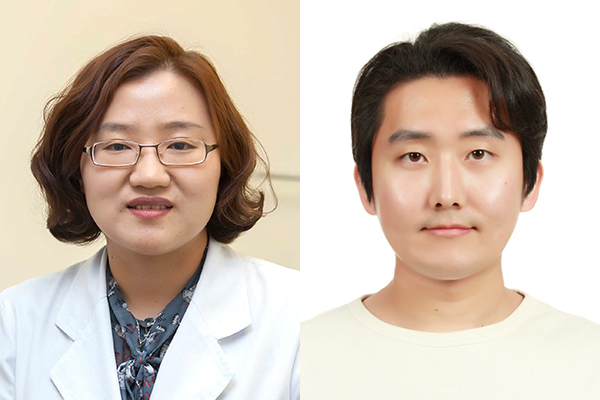-
- Global AMC MENU
- NEWS
- HEALTH
- PEOPLE
- Introduction

▲(from the left) Professor Sook Ryun Park and Specialist Changhwan Sung
A research team led by Professor Sook Ryun Park of the Division of Oncology and Specialist Changhwan Sung of the Department of Nuclear Medicine of Asan Medical Center has identified risk factors for cancer immunotherapy side effects. They have also developed a model to predict these adverse events prior to cancer immunotherapy treatment. Cancer immunotherapy, a third-generation approach to cancer treatment, activates the patient’s immune system and has been recognized for its superior therapeutic performance compared to conventional anticancer drugs. However, concerns have been raised regarding the possibility of immune activation leading to immune-related adverse events (irAEs).
In collaboration with eight other South Korean institutions, the research team established a large-scale prospective cohort of irAEs. They collected patient data, including clinical information, genomes, transcriptomes, and blood markers. The team categorized irAEs into twelve major categories and examined the relationship between risk factors and side effects for each category. Additionally, they developed a deep learning prediction model based on side effect risk factors to determine the likelihood of an adverse event occurring prior to cancer immunotherapy treatment. Previous studies on this topic have been limited in size or scope, with few indicators. Moreover, earlier studies were conducted in patient populations recruited for purposes other than studying immune-related adverse events.
Professor Sook Ryun Park stated, “Cancer immunotherapy is widely used in clinical practice, and patient safety has become increasingly important alongside therapeutic effectiveness. Until now, there have been no indicators to predict treatment side effects in advance. This study, however, will help predict the occurrence of cancer immunotherapy side effects in advance, and we anticipate that it will establish a foundation for practicing precise medical treatment for cancer patients.”
This research was conducted as part of the Ministry of Science and ICT's project called ‘Innovation in New Medicine Development through Artificial Intelligence.’ The research findings were recently published in 'Nature Cancer,' a prestigious academic journal in the field of oncology.












